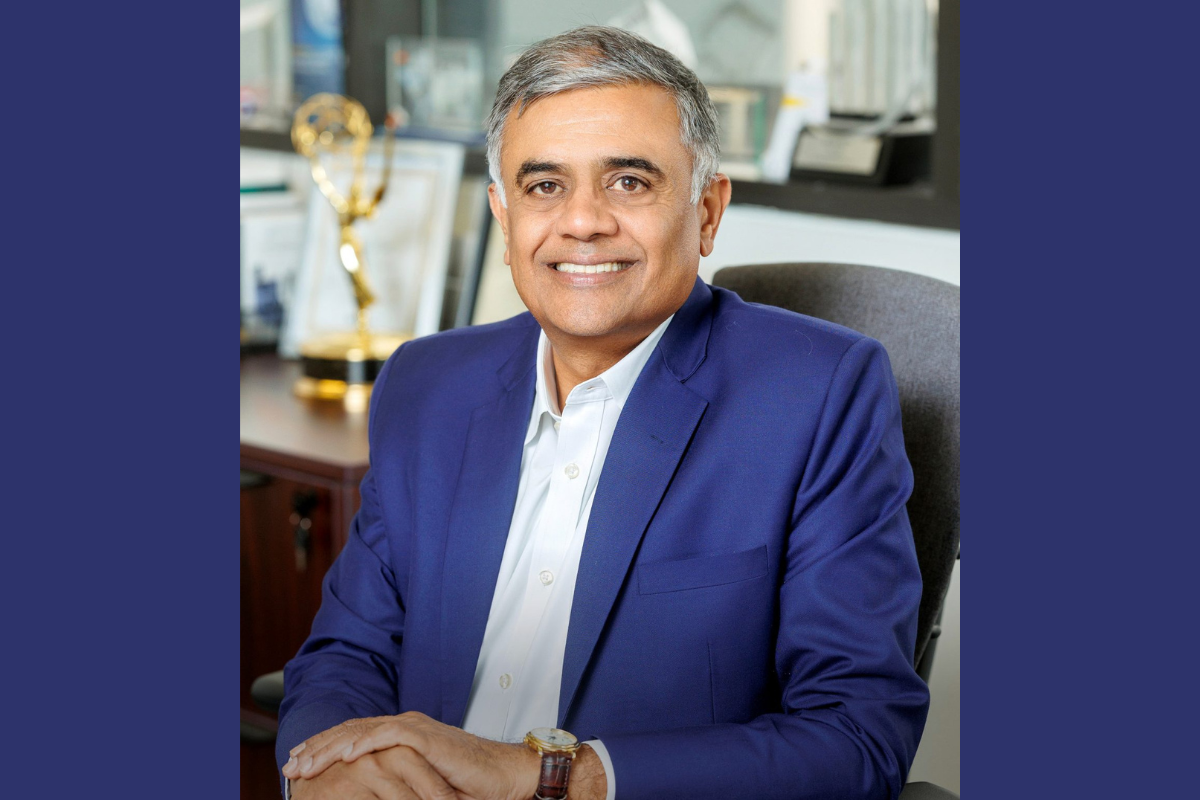Global Agility: Raj Patil
Orion Innovation CEO Raj Patil wants his IT services and solutions company to have the strength of a large company and the agility of a boutique firm.
As Raj Patil surveyed the potential for IT services and solutions provider Orion Innovation on the eve of becoming CEO, the word ‘agility’ kept coming to mind.

"I saw the opportunity to build a differentiated company in this digital transformation space," Patil tells The CEO Magazine. "There was a need for a company that could bring a combination of what the large players brought, which was global scale, and what the boutique players brought, which was extreme agility, and we call that agility at scale.

"The thesis was, how do we build a platform that can bring agility, yet at global scale?"
Over his seven-year tenure as CEO and President, Patil’s vision has guided Orion toward this goal, as he transformed the company into an indispensable player in the digital transformation space.

There was a need for a company that could bring a combination of what the large players brought, which was global scale, and what the boutique players brought, which was extreme agility.
Simply put, digital transformation describes the adaptation and implementation of digital technologies into a company’s operations. Orion has helped some of the biggest names in business carry out their digital transformations, improve efficiencies and enhance customer experience.
It has partnered with Fortune 1000 companies including professional services firms, financial services firms along with fintechs and professional sports leagues.
"We have a significant presence in the TMT industry or telecom, media and technology, where we work across the spectrum with telecom operators," Patil adds.
Growth on fast track
Orion has expanded rapidly under Patil’s leadership, growing its workforce from 700 to nearly 7,000 employees as Patil immediately identified opportunities for expansion upon taking the reins.
"We saw a digital transformation happening with new emerging technologies," he explains. "We asked ourselves, ‘How do we capture that shift to build a world-class, large, differentiated platform?’ That’s when we established an architecture to bring in those new technologies and started the next phase of Orion’s journey."
Orion also started expanding its global footprint with an even mix of talent across three main areas: North America, Eastern Europe and Asia, Patil says.
"The thesis there was to say we should be able to bring talent where it is best suited to solve a specific problem, as opposed to force-fitting it," he explains.
Orion had been solving complex business problems for the past three decades and helping customers adapt to technological shifts. But Patil saw the opportunity to expand on what he calls deep technology.
"Technology is great, but what problems do we solve?" he asks. "How do you deeply integrate design, user experience into technology transformation for large enterprises?"
Learning curve
Patil developed a wealth of similar experiences in IT consulting and services, prior to being recruited as CEO in 2016.
"Back then, the shift that was happening was the internet," he recalls. "The biggest learning was, how do you build around a technology shift? That is obviously coming into play here."
He notes that growth has been impressive for Orion, but it hasn’t been without its challenges, one of which is inherent to the industry.
"Technology is transient," Patil says. "New and interesting players come into the space and we have the opportunity to further evolve the solutions we are building for clients."
Technology is great, but what problems do we solve?
To keep staff up to speed on the rapid changes, Patil put an emphasis on continuous learning within the company.
"Continuous learning is ingrained in our culture, and we provide tools and resources across the globe for our employees and associates to keep learning," Patil says. "We emphasize a growth mindset.
"It all comes down to talent. They grow, the business grows. They take on more challenges and the cycle continues. The rest is managing that growth and scaling."
In the technology sector, talent can often be in short supply, so Orion goes the extra mile in its recruiting efforts.
"We go deep," Patil says, noting the company forms strategic partnerships with universities. "We actually go in and help with the curriculum. We go in and help with teaching at times."
echnology is transient. New players come into the space as well, and we have the opportunity to further evolve the solutions we are building for clients.
Orion pursues a similar partnership model with its suppliers, which includes Denodo, a global leader in data management. Patil describes it as an ecosystem.
"Given the type of work we do, it’s just not a single firm but a number of firms that come together for a digital initiative," he says.
"There are three bands. One is large-scale strategic partners. Second is strategic partners either for specific technology or specific industry solutions. And the third is what we call emerging partners."
The ecosystem will continue to allow Orion to scale in its geographic markets.
"These are becoming not just delivery centers, but actual commercial markets," Patil affirms.
The company is also focused on expanding industry-specific verticals.
"That’s what we see driving this," Patil says. "And hopefully that will result in doubling the company in the next three-to-five years."